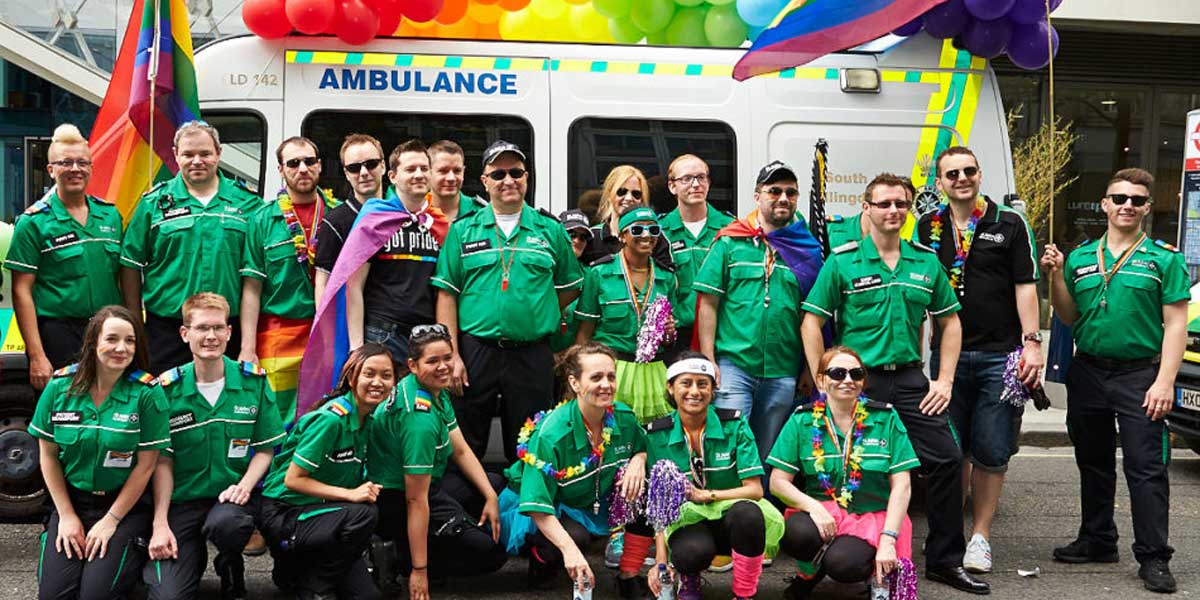LGBT+ employee networks within the NHS
-
Case study
- Health and Wellbeing
- Justice and Equality
Lesbian, gay, bisexual and transgender (LGBT+) individuals form an important part of diverse British workplaces. By better understanding staff networks, we can help to create more inclusive environments.

This research will provide much needed evidence of how LGBT+ networks operate and their scope to bring about change for members, other LGBT+ staff and organisations.
The issue
Most large organisations have established LGBT+ employee networks to support gender and sexual minorities and run training programmes to inform staff about equality and diversity related matters. However, we know little about how these networks operate, and LGBT+ employees still face adversity at work.
We aim to develop a better understanding of how LGBT+ networks are run and what they can do to improve relationships between colleagues. Ultimately, our goal is to improve the wellbeing of LGBT employees.
The research
Using surveys, interviews with network members and taking part in network activities, we're establishing an understanding of how networks operate. Working closely with networks has given us an insight into what they focus on and how they are strategically involved in LGBT+ related matters within their organisations. Surveys are giving us insights into some of the challenges NHS employees may be facing, providing data on key issues such as pay gaps, the effectiveness of staff networks, discrimination and the voice and inclusion of minority groups.
We have set up a forum for NHS staff to discuss LGBT+ networks. The forum is a valuable source of information, providing a platform for staff from across the UK to share their experiences, whether or not they're involved directly with an employee network. Conversations such as these are important to us as they signal that concerns and questions affect networks across the country. They also offer opportunities for staff to find out what other networks are doing and connect with colleagues from around the UK.
We've found that networks differ in size and shape and how they are operationalised, but they also share some common ground, particularly around membership and representation.
The outcome
The results of our research will be published and disseminated with support from our research partners: Stonewall, Employers Network for Equality & Inclusion (ENEI) and NHS Employers.
Our findings will be useful to LGBT+ employees in and outside the NHS, HR practitioners, policy makers, and scholars in the fields of diversity in organisations and gender and sexuality studies, together with the general public.
Research outputs include an online forum connecting NHS employees interested in LGBT+ employee networks, practitioners' reports, workshops with equality, diversity and inclusion leads, and academic journal articles. Project outcomes will further help to shape programs delivered by ENEI to public, private and third sector organisations, and to support ongoing campaigns on behalf of Stonewall to improve work experiences of LGBT+ employees.
We plan to turn research findings into theatre, working with script writer Adam Robinson and the production company Little Mighty. We are very excited to cross the boundaries of social sciences and humanities to connect with people on social issues.
Find out more about this project at lgbtnetworks.org.uk
.jpg)
Anna Einarsdottir
Dr Einarsdottir's area of expertise concerns discriminatory practices at work and promotion of inclusive organisational environments.
